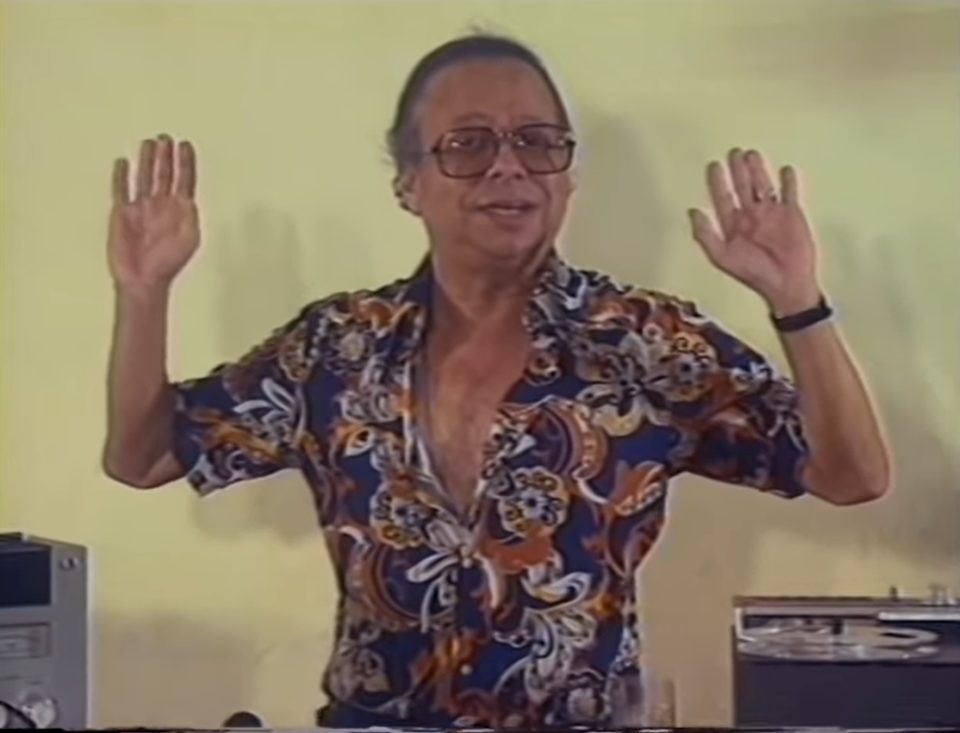10 Essential Hits Celebrating R.D. Burman on His 83rd Birth Anniversary
Songs across styles and decades from Pancham da, the master composer
Today is Rahul Dev Burman’s 83rd birth anniversary. If he was alive, would he be still experimenting and composing and creatively extracting every last vestige of music in him by the creator? One remembers how painfully he spent the last years of his life, and one can’t be blamed to think, maybe he is better off in a place where no one is judging him and for once in the living world, fans and music lovers and the fickle-minded music industry are worshiping his memories and his music.
It takes death to make people revere a genius like Pancham da, a name bestowed upon him and linking him eternally to music.
Since his death in 1994, radio, television, magazines, books, memoirs and stories from his colleagues have kept him alive and his tribe has only grown. Pancham da arguably found glory and reverence after he breathed his last and that’s the sad and ironic truth of his legacy.
I am also guilty of not worshipping and celebrating the pop culture king as much as I do now compared to when he was alive. As a student in 1991, my friends and I spent a lot of time listening to R.D. and the soon after, we had the hit pair Jatin-Lalit. We would study the off-beat rhythm on the percussion, which was a trademark of Burman.
Fascinated by the soundtrack and background score for Satte Pe Satta (1982) – the sharp plucking of the guitar in “Pariyon Ka Mela Hai” and the gargling sound of singer Annette Pinto in the eerie background score. Pancham da arranged the song “Tere Bina Jiya Jaaye Na” mesmerizingly for the movie Ghar in 1978, plus the way he harmonized Asha Bhosle and Kishore Kumar’s vocals in “Hawa Ke Saath Saath” from the 1972 movie Seeta Aur Geeta was exceptional.
Burman’s genius flowered very early from the Sixties itself but it took Dev Anand’s Dum Maro Dum and Kishore and Rajesh Khanna’s jodi to really make him the toast of the industry. In 1967, he released a devotional number written by Sachin Bhowmick, “Mone Pore Ruby Ray,” which at that time was criticized for trivializing and westernizing Bengali musical expression, but went on to become a hit in the film Anamika as ‘Meri Bheegi Bheegi Si.” The Bengali number today is a cult composition and even Arijit Singh has rendered the masterpiece.
I could write endless pages on Pancham da‘s musical genius but will limit myself to list a few tracks, a few treasures from his life’s work which are also my favorites.
1. “Ghar Aaja Ghir Aayebadra” (Chhote Nawab, 1961)
This was his first release as an independent music director and what a classical gem this is, composed on Raag Malgunji and rendered beautifully by Lata Mangeshkar. In his very first movie his classical prowess is visible but somehow his rock and roll compositions in the late Sixties defined him.
2. “Hamein Tumse Pyaar Kitna” (Kudrat, 1981)
While the male version by Kishore can give you goosebumps, the female version by Parveen Sultana brought out a different flavor of this timeless classic based on Raag Bhairavi
3. “Tum Bin Jaun Kahan” (Pyar Ka Mausam, 1969)
Pancham da begged and pushed to get Kishore Kumar’s version of the song in the movie and that too partly during the credits and picturized on Bharat Bhushan. Yet this song is a massive hit in Kishore’s voice and also credit to Burman for knowing that the song suited Kishore’s style better.
4. “Jaane Jaaan Dhoondta Phir Raha” (Jawani Diwani, 1972)
A perfect duet composition and sung brilliantly by Asha and Kishore. Asha ji‘s voice sounds amazing and full at the low notes. Later on her songs from Umrao Jaan (1981) at a lower pitch sounded so beautiful and haunting.
5. “Ek Chatur Naar” (Padosan, 1968)
What a perfect comic riot on the screen and an outstanding composition and arrangement by Pancham da. While the fun in the lyrics and masterful rendition by Manna Dey in Carnatic style and Kishore in dazzling form takes away your breath, the musical genius is so much at work here.
6. “Do Naina Ek Kahani” (Masoom, 1983)
There’s a lot to be said about Burman’s understanding of sound design and the levels to be maintained in a song is vivid in this track. I felt even as technology improved in the Eighties, the composers who came after him couldn’t beat his grasp of sound and mastering.
7. “Roj Roj Aankon Tale” (Jeeva, 1986)
Amit Kumar’s entry in this track reminds me of Kishore’s entry in “Salaame Ishq” from Muqaddar ka Sikandar (1978). Pancham da‘s career was sliding by now, but this track penned by Gulzar deserves to be celebrated.
8. “Mera Kuchh Saaman” (Ijaazat, 1987).
This song epitomizes the magic of the duo of Gulzar and R.D. Burman. There’s was a whirlpool of creative brilliance right from Parichay, Aandhi to Dil Padosi Hai.
9. “Mitwa Bole Meethe Bain” (Parichay, 1972)
A beautiful classical composition sung by Bhupinder Singh. All the songs of Parichay are worth mentioning but this is one of my personal favorites.
10. “Kuch Na Kaho Kuch Bhi Na Kaho” (1942 A Love Story, 1994)
Pancham da‘s swan song was arguably also Kumar Sanu’s best song. Even Lata Mangeshkar’s version would miss out and not sound as riveting as Sanu’s version.








